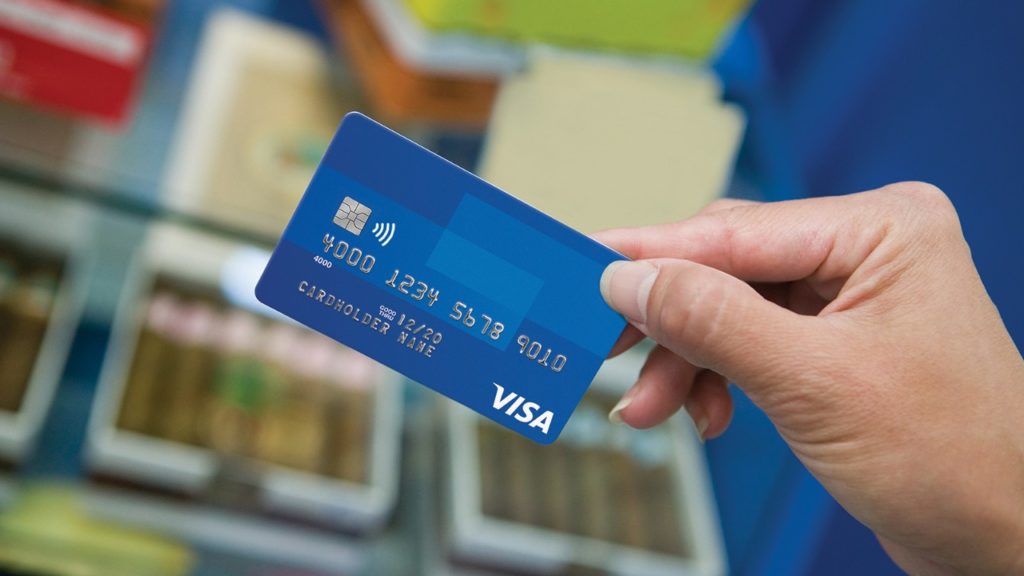As mobile payments become accepted in more places, and the use of chips in credit card become the norm, many credit card networks have announced the end of the signature requirement. It makes sense—the signature is hardly a reliable tool to prevent fraudulent activity, not to mention that it’s almost never checked.
In October 2017, MasterCard became the first global credit card company to announce that they will no longer require signatures on purchases. In early December 2017, Discover made a similar announcement. A week later, American Express “one upped” everyone, announcing that they are eliminating the requirement globally. This left Visa as the only holdout.
Well, not anymore. Today, Visa announced that they, too, will no longer require signature on credit purchases in North America—with a few caveats. Merchants can still require a signature if they want, and this only applies to credit cards equipped with an EMV chip. However, since almost all credit cards in the US are now chip-enabled, most shouldn’t find that to be a problem.
Visa made the announcement public in a Tumblr post:
Visa is committed to delivering secure, fast and convenient payments at the point of sale,” said Dan Sanford, vice president, consumer products, Visa. “Our focus is on continually evolving the market towards dynamic authentication methods such as EMV chip, as well as investing in emerging capabilities that leverage advanced analytics and biometrics. We believe making the signature requirement optional for EMV chip-enabled merchants is the responsible next step to enhance security and convenience at the point of sale.

Visa is eliminating signature requirements on credit card purchases starting April 2018. Source: Visa
The signature requirement will become optional (depends on the merchant) as of April 2018, which is the same timeframe American Express, Discover, and MasterCard have announced. This move is presumably to make sure Visa cards remain top-of-wallet (or at least competitive) for customers, since one less thing to at checkout is one more incentive for a customer to use a card.
This does raise an interesting question though. The signature was in place as an old fashioned “two factor authentication,” with the idea being someone with your card couldn’t just use it, since they would have to forge your signature as well. This evolved into Chip and PIN, which has been widely adapted across the globe, with the PIN being an easier, more reliable “second factor.” Meanwhile in the US, banks and merchants opted for Chip and Signature (instead of Chip and PIN), which is both cumbersome and unreliable.
We have heard that customers in the US are not happy about the switch to Chip technology, and I guess credit card networks’ solution is to get rid of the “second factor” altogether? Perhaps this means the technology behind fraud prevention is so advanced, that banks can simply use algorithms and pattern recognition to know if a card activity is fraudulent. Personally, though, I would rather we adopt Chip and PIN than Chip alone. Just for the sake for my reassurance. What do you think?
The responses below are not provided or commissioned by the bank advertiser. Responses have not been reviewed, approved or otherwise endorsed by the bank advertiser. It is not the bank advertiser's responsibility to ensure all posts and/or questions are answered.
2 comments
I agree that we should start moving towards chip and pin. Also i couldn’t use my card in Madrid using the Metro’s ticket machine because my card was a chip and signature so i ended up using my actual ATM card so purchase my ticket. Sure it’s another thing to remember but it would make the transaction more secure.
Chip and pin would be horrible idea. Stop supporting that. It shifts liability to consumers. Banks in the UK are known to find any fraud with chip and pin and side against card holder and leave them to pay the charges. ….Because cardholder must in on the fraud since pin was used.
Late night train tickets stories from hipsters are stupid reasons to switch fraud liability.